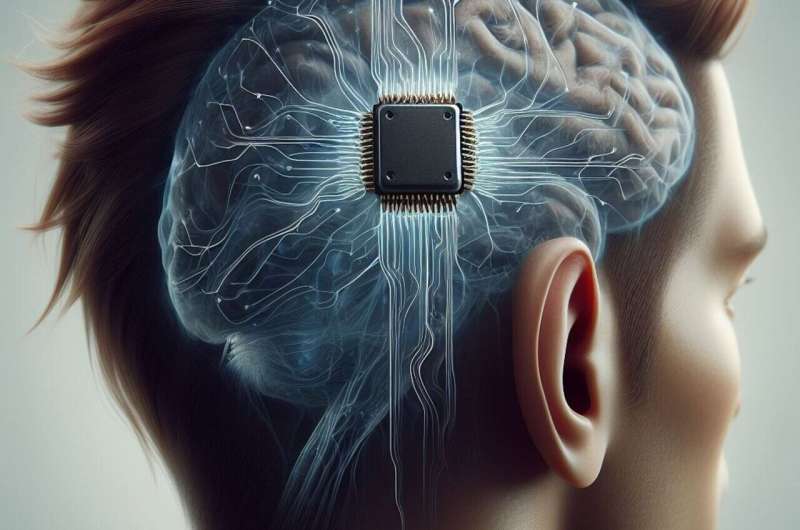This article has been reviewed according to Science X's editorial process and policies. Editors have highlighted the following attributes while ensuring the content's credibility:
fact-checked
reputable news agency
proofread
World must act on neurotech revolution, say experts

The world is on the cusp of a neurotechnology revolution that could transform human health and welfare, but urgent action is needed to protect brain data, experts told AFP on Friday.
Medical neurotechnology breakthroughs have allowed paralyzed people to walk again, or deaf people to hear.
Elon Musk's firm Neuralink has also publicized advances with brain implants, pushing the idea they could one day be a lifestyle choice rather than a medical device.
But three experts gathered in Paris as part of a panel to advise UNESCO, the UN's agency for science and culture, told AFP the technology was already starting to proliferate.
"This is really a crucial moment in human history," said Marcello Ienca of the Technical University of Munich in Germany.
"For the first time, we are developing the tools to understand and modify the functioning of the human brain and modify the functioning of the human brain."
Ienca and the other experts interviewed by AFP—research scientist Nataliya Kosmyna and entrepreneur Ryota Kanai—stressed that the emerging field was much wider than isolated medical breakthroughs, with an array of consumer products already on the market.
They said the technology would be widely available in just a few years and ethical guidance would be vital.
UNESCO has formed a group of 24 experts to help draft an "ethical framework" for the emerging technology, hoping to get agreement from UN member states by the end of next year.
'A new species'
Musk has positioned himself at the center of efforts to publicize neurotechnology, making eye-catching claims suggesting humans could become telepathic or upload their consciousnesses and in effect live forever.
Kosmyna said some of Musk's more outlandish statements were probably aimed more at attracting potential investors than reflecting the reality of the technology.
But Kosmyna, who designs and develops wearable devices such as glasses and hats that process brain data, said the field had the potential to transform humanity.
"I absolutely believe in the augmented human and that we are about to create a new species," she said.
And although the experts were broadly skeptical of many of Musk's claims, they said his firm was doing some original work.
Ienca said Neuralink was the only firm currently thinking of brain implants for enhancement rather than medical needs.
However, the experts said wearable technology was far more likely to turn a profit in the short term.
"You not going to drill your skull, but you're going to wear these (devices)," said Kosmyna.
She estimated in the next five years classrooms and other settings would be revolutionised by wearable technology that would allow teachers to monitor their students and tell if they were bored, confused or engaged.
'Two-tier planet'
UNESCO is aiming to make sure that all such technology respects human rights.
"There can be no neurodata without neurorights," said UNESCO Director-General Audrey Azoulay in a statement.
Ienca pointed out that Apple had recently patented technology that will allow the next generation of Airpods to gather brain data.
"Apple will be able to collect brain activity information continuously from hundreds of millions of people," he said.
The data could be put to all sorts of uses—from health care to marketing—and needed to be protected, he said.
A secondary concern is making sure the products actually do what their manufacturers say.
Devices already on the market claim to all kinds of powers—from solving mental health issues to boosting productivity at work.
"Even neuroscientists don't know if that kind of claim is true," said Kanai, CEO of Araya, a Japanese AI and neurotech firm.
Of much wider concern, said Ienca, was that we could create a "two-tier planet" divided between "the enhanced and the non-enhanced".
"This could be the end of human social cohesion as we know it," he said.
© 2024 AFP




















